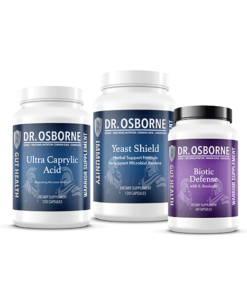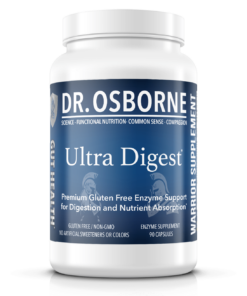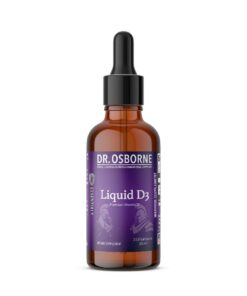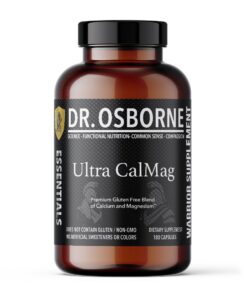new to the gluten free journey?
new to the gluten free journey?
$62.95 — or subscribe and save 10%
Intestinal Defense – Supports Healthy Microbial Balance in the GI Tract
The gut is the largest collection of immune cells in the body. Which means when the gut’s microbes are out of balance your immune system isn’t working at optimal levels. An increase in microbe-fighting natural ingredients helps create a hostile environment for pathogenic microbes while supporting healthy gut and immune functions. Intestinal Defense is formulated with the goal of strengthening the gastrointestinal flora and boosting the body’s antioxidant properties. This blend of ingredients has been used for thousands of year
Intestinal Defense:
Ingredients: Known for their anti-viral, anti-bacterial, anti-parasitic, and anti-inflammatory properties, these ingredients have a long track record in the natural medicine world.
Does Not Contain: Wheat, Gluten, Grains, Soy, Animal or Dairy Products, Fish, Shellfish, Peanuts, Egg, Artificial Colors, Artificial Sweeteners or Preservatives.
Daily Use: 1 capsule per day or as recommended by your health care professional.
Optimal Use: 1 capsule two times per day or as recommended by your health care professional.
High Stress Use: 1 capsule three times per day or as recommended by your health care professional.
Precautions: Do not consume this product if you are pregnant or nursing. Consult your physician for further information.
Questions:
Is this safe for children? Supplementation in children should always be monitored by their pediatrician.
Is this safe for a pregnant or nursing mother? If you are pregnant, nursing or taking any medications for depression or anxiety, consult your health care provider before taking this product.
Should this be taken at a specific time of the day? Can be taken in the morning, or in divided doses throughout the day. Can be taken with or without food.
The Science:
This site uses Akismet to reduce spam. Learn how your comment data is processed.




Stay up-to-date with the latest articles, tips, recipes and more.

*These statements have not been evaluated by the Food and Drug Administration. This product is not intended to diagnose, treat, cure or prevent any disease.
If you are pregnant, nursing, taking medication, or have a medical condition, consult your physician before using this product.
The entire contents of this website are based upon the opinions of Peter Osborne, unless otherwise noted. Individual articles are based upon the opinions of the respective author, who retains copyright as marked. The information on this website is not intended to replace a one-on-one relationship with a qualified health care professional and is not intended as medical advice. It is intended as a sharing of knowledge and information from the research and experience of Peter Osborne and his community. Peter Osborne encourages you to make your own health care decisions based upon your research and in partnership with a qualified health care professional.
Leigh S. –
I was having mostly symptoms of Candida but also thought parasites could be to blame, so I choose Intestinal Defense as it contains ingredients that target both intestinal issues. I researched the ingredients separately and thought that a mix of the herbs would be a synergistic boost to my impaired immune system. I have been taking Intestinal Defense for over four months and my symptoms have largely disappeared and I believe my immune system is getting stronger. Thank you Dr. Osborne for this great product!
. –
I had been taking ivermectin weekly for prophylaxis (the horse paste, because you can’t get the human stuff) and I wanted to try taking this product in its place. I have not noticed any problems with it. I take it three or four times per day.
. –
I have not started taking this supplement yet. I purchased it in case I should come down with “the disease that should not be mentioned” and I wanted it on hand because we can’t get Ivermectin. I live in Canada and did not know how long it would take to get here. It took 2 weeks. I then ordered Virid on October 19 which I have not received yet but hopefully will in the next few days. I can purchase the other supplements from the health food store here in Brockville, Ontario, Canada. Actually, I already take the other supplements in your protocol. I just wanted to be prepared to handle this disease if need be as I have no intention of getting the jab. I am gluten free and I enjoy your emails tremendously. I feel good about these 2 supplements because they are for sure gluten free so that is something I do not have to worry about. Thank you Dr. Osborne for all your hard work. Enjoyed your talk on TTAC Live because you always deliver such good information. Blessings, Dorine Secours
. –
We purchased this to use IF we got the dreaded disease but have not had to use it yet so can’t speak to it’s effectiveness. Because we trust Dr. Osborne, we trust it will work.
Nancy W. –
Having worked hard the last three years to heal my body and discover the foods that were keeping me tired, sick and often constipated, I decided to add Intestinal Defense to my daily supplements several months ago. This product has given me AMAZING success against constipation! I feel so much better!!
I am so thankful to Dr Osborne and GFS for providing supplements that are truly gluten free. Finally no more nausea after taking supplements.
Ranjni D. –
This product has been a life saver. I have been going I circles for the last five years trying to figure my joint paint until I ended up with a functional medicine expert. Found out lots of food sensitivities. I stumbled upon your website and started reading and researching. I decided to order some gluten free supplements and sure enough haven’t felt this way in the last 5 years. I will definitely order more and I highly recommend it to anyone who has digestive issues.
. –
Used it during a recent bout of sickness, 4/day. I believe it helped keep things mild along with using virid and other basics like C and D. I trust Dr. Osborne’s advice and will keep it on hand along with a bottle of virid.
MICHAEL S. –
Wormwood great supplement to improve immunity against whatever is out there.
I have increased confidence that my immune system will defend me against all odds.
Paulette B. –
I appreciate this product…it seems to help with gut issues a lot. Thank you!!
Kathleen M. –
Use this every month during the full moon for parasites. Have eradicated liver flukes amongst others unseen. Need to keep up on those buggers especially if you have animals. Great stuff! Thank you Dr. O…….
Paulette B. –
Excellent product!